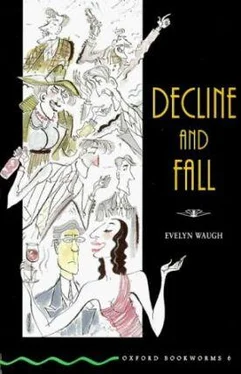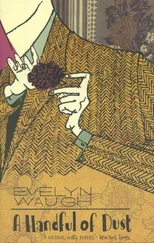Later they would drive away in their big motor cars to their modernized manors, and as they sat in their hot baths before dinner the more impressionable visitors might reflect how they seemed to have been privileged to step for an hour and a half out of their own century into the leisurely, prosaic life of the English Renaissance, and how they had talked at tea of field‑sports and the reform of the Prayer‑Book just as the very‑great‑grandparents of their host might have talked in the same chairs and before the same fire three hundred years before, when their own ancestors, perhaps, slept on straw or among the aromatic merchandise of some Hanse ghetto.
But the time came when King's Thursday had to be sold. It had been built in an age when twenty servants were not an unduly extravagant establishment, and it was scarcely possible to live there with fewer. But servants, the Beste‑Chetwyndes found, were less responsive thar their masters to the charms of Tudor simplicity; the bedrooms originally ordained for them among the maze of rafters that supported the arches of uneven stone roofs were unsuited to modern requirements, and only the dirtiest and most tipsy of cooks could be induced to inhabit the enormous stone‑flagged kitchen or turn the spits at the open fire. Housemaids tended to melt away under the recurring strain of trotting in the bleak hour before breakfast up and down the narrow servants' staircases and along the interminable passages with jugs of warm water for the morning baths. Modern democracy called for lifts and labour‑saving devices, for hot‑water taps and cold‑water taps and (horrible innovation!) drinking water taps, for gas‑rings, and electric ovens.
With rather less reluctance than might have been expected, Lord Pastmaster made up his mind to sell the house; to tell the truth, he could never quite see what all the fuss was about; he supposed it was very historic, and all that, but his own taste lay towards the green shutters and semi‑tropical vegetation of a villa on the French Riviera, in which, if his critics had only realized it, he was fulfilling the traditional character of his family far better than by struggling on at King's Thursday. But the County was slow to observe this, and something very like consternation was felt, not only in the Great Houses, but in the bungalows and the villas for miles about, while in the neighbouring rectories antiquarian clergymen devised folk‑tales of the disasters that should come to crops and herds when there was no longer a Beste-Chetwynde at King's Thursday. Mr Jack Spire in the London Hercules wrote eloquently on the Save King's Thursday Fund, urging that it should be preserved for the nation, but only a very small amount was collected of the very large sum which Lord Pastmaster was sensible enough to demand, and the theory that it was to be transplanted and re-erected in Cincinnati found wide acceptance.
Thus the news that Lord Pastmaster's rich sister‑in‑law had bought the family seat was received with the utmost delight by her new neighbours and by Mr Jack Spire, and all sections of the London Press which noticed the sale. Teneat Bene Beste-Chetwunde, the motto carved over the chimneypiece in the great hall, was quoted exultantly on all sides, for very little was known about Margot Beste‑Chetwynde in Hampshire, and the illustrated papers were always pleased to take any occasion to embellish their pages with her latest portrait; the reporter to whom she remarked, 'I can't think of anything more bourgeois and awful than timbered Tudor architecture, did not take in what she meant or include the statement in his 'story'.
King's Thursday had been empty for two years when Margot Beste‑Chetwynde bought it. She had been there once before, during her engagement.
'It's worse than I thought, far worse, she said as she drove up the main avenue which the loyal villagers had decorated with the flags of the sometime allied nations in honour of her arrival. 'Liberty's new building cannot be compared with it, she said, and stirred impatiently in the car, as she remembered, how many years ago, the romantic young heiress who had walked entranced among the cut yews, and had been wooed, how phlegmatically, in the odour of honeysuckle.
Mr Jack Spire was busily saving St Sepulchre's, Egg Street (where Dr Johnson is said once to have attended Matins), when Margot Beste‑Chetwynde's decision to rebuild King's Thursday became public. He said, very seriously: 'Well, we did what we could, and thought no more about it.
Not so the neighbours, who as the work of demolition proceeded, with the aid of all that was most pulverizing in modern machinery, became increasingly enraged, and, in their eagerness to preserve for the county a little of the great manor, even resorted to predatory expeditions, from which they would return with lumps of carved stonework for their rock gardens, until the contractors were forced to maintain an extra watchman at night. The panelling went to South Kensington, where it has come in for a great deal of admiration from the Indian students. Within nine months of Mrs Beste‑Chetwynde's taking possession the new architect was at work on his plans.
It was Otto Friedrich Silenus's first important commission. 'Something clean and square, had been Mrs Beste‑Chetwynde's instructions, and then she had disappeared on one of her mysterious world‑tours, saying as she left: 'Please see that it is finished by the spring.
Professor Silenus ‑ for that was the title by which this extraordinary young man chose to be called ‑ was a 'find' of Mrs Beste‑Chetwynde's. He was not yet very famous anywhere, though all who met him carried away deep and diverse impressions of his genius. He had first attracted Mrs Beste‑Chetwynde's attention with the rejected design for a chewing‑gum factory which had been produced in a progressive Hungarian quarterly. His only other completed work was the décor for a cinema‑film of great length and complexity of plot ‑ a complexity rendered the more inextricable by the producer's austere elimination of all human characters, a fact which had proved fatal to its commercial success. He was starving resignedly in a bedsitting‑room in Bloomsbury, despite the untiring efforts of his parents to find him ‑ they were very rich in Hamburg ‑ when he was offered the commission of rebuilding King's Thursday. 'Something clean and square' ‑ he pondered for three hungry days upon the aesthetic implications of these instructions and then began his designs.
'The problem of architecture as I see it, he told a journalist who had come to report on the progress of his surprising creation of ferro‑concrete and aluminium, 'is the problem of all art ‑ the elimination of the human element from the consideration of form. The only perfect building must be the factory, because that is built to house machines, not men. I do not think it is possible for domestic architecture to be beautiful, but I am doing my best. All ill comes from man, he said gloomily; 'please tell your readers that. Man is never beautiful, he is never happy except when he becomes the channel for the distribution of mechanical forces.
The journalist looked doubtful. 'Now, Professor, he said, 'tell me this. Is it a fact that you have refused to take any fee for the work you are doing, if you don't mind my asking?
'It is not, said Professor Silenus.
'Peer's Sister‑in‑Law Mansion Builder on Future of Architecture, thought the journalist happily. 'Will machines live in houses? Amazing forecast of Professor-Architect.
Professor Silenus watched the reporter disappear down the drive and then, taking a biscuit from his pocket, began to munch.
'I suppose there ought to be a staircase, he said gloomily. 'Why can't the creatures stay in one place? Up and down, in and out, round and round! Why can't they sit still and work? Do dynamos require staircases? Do monkeys require houses? What an immature, self-destructive, antiquated mischief is man! How obscure and gross his prancing and chattering on his little stage of evolution! How loathsome and beyond words boring all the thoughts and self‑approval of his biological by-product! this half‑formed, ill‑conditioned body! this erratic, maladjusted mechanism of his soul: on one side the harmonious instincts and balanced responses of the animal, on the other the inflexible purpose of the engine, and between them man, equally alien from the being of Nature and the doing of the machine, the vile becoming!
Читать дальше












